‘Balancing growth and sustainability is the challenge of the century for the tourism sector’
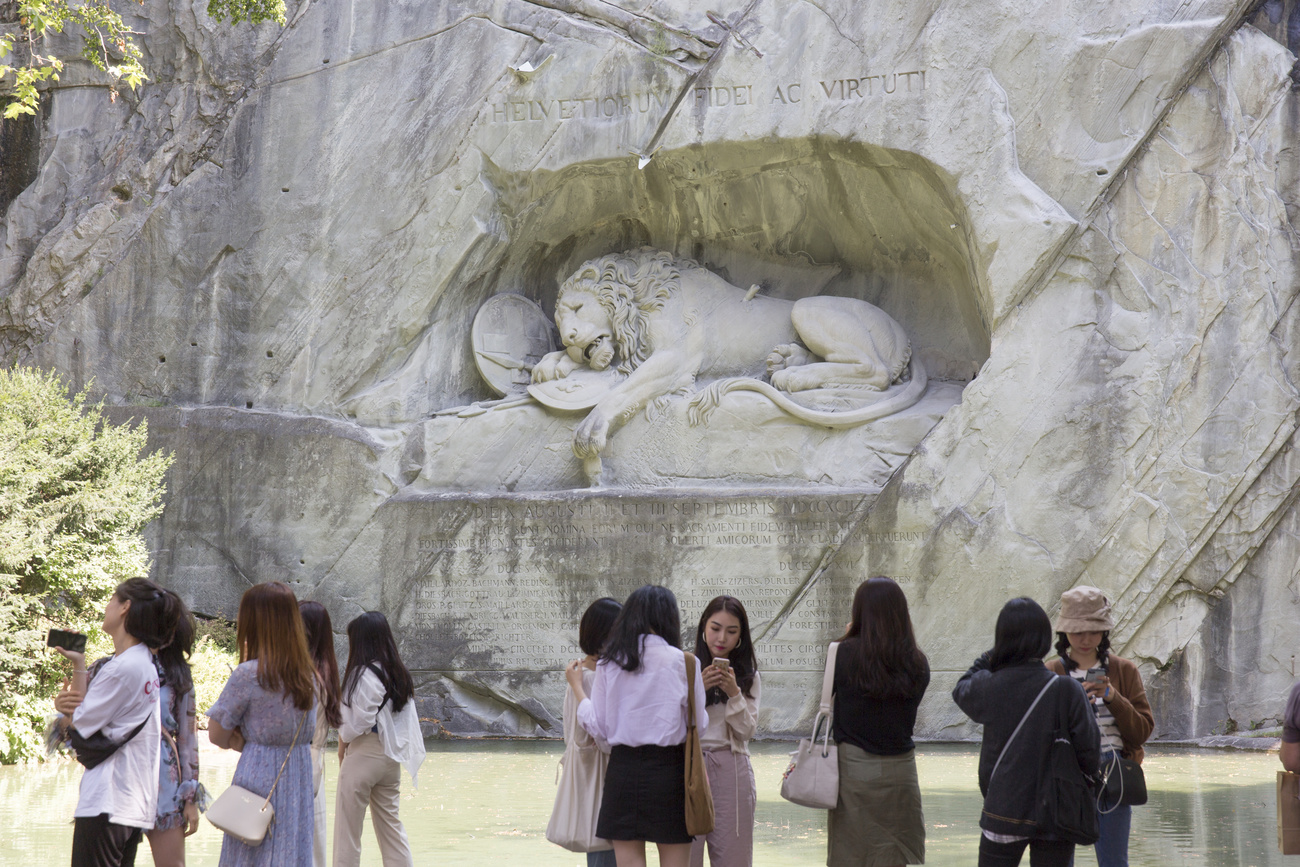
In 2024, the tourism and travel industry is expected to reach, or even exceed, pre-pandemic levels. Francisco Betti is the co-author of a report on world tourism for the World Economic Forum (WEF). He believes firmly in the key role of technological progress in making the sector sustainable in the next 20 years.
Check out our selection of newsletters. Subscribe here.
Each January, heads of state, business executives and leaders from varied walks of life travel to the Swiss mountain resort of Davos to attend the World Economic Forum (WEF). But the Davos meeting is by no means the WEF’s only activity.
Originally focused on organising international conferences, the Geneva-based foundation has gradually broadened its scope to include a range of other activities, including content co-creation, community management and the co-management and incubation of pilot projects.
In May the WEF, in conjunction with the University of Surrey, co-published the 2024 edition of theTravel and Tourism Development IndexExternal link, which provides an overview of the current state of the international travel and tourism sector. We spoke to Francisco Betti, co-author of the report, who is part of the WEF Executive Committee and heads the forum’s Global Industries Team.
Francisco Betti joined the World Economic Forum in 2015. He is currently a member of the Executive Committee and leads the forum’s Global Industries Team. This brings together more than 20 industry communities to help companies and sectors anticipate current and future trends and accelerate the responsible transformation of industries.
Betti previously worked for PricewaterhouseCoopers in Geneva, mainly providing management consultancy services to international organisations. He studied at Sapienza Università of Rome, where he obtained a master’s degree in international relations.
SWI swissinfo.ch: What are the main findings of the 2024 edition of the Travel and Tourism Development Index?
Francisco Betti: In 2024, the travel and tourism sector is expected to reach or even exceed pre-pandemic levels. This recent growth is due to the reopening of economies and a rebound in demand for travel and tourism.
Of course, the opening of new flights, airports, natural and cultural attractions, etc. has contributed to this recovery. Few people realise that this sector accounts for nearly 10% of the world’s gross national product (GNP) and that it has a significant impact on employment.
SWI: What are the main risks facing the industry today?
F.B.: Despite its renewed growth, the sector is fragile and faces multiple challenges. I am thinking especially of macroeconomic and geopolitical uncertainties, as well as environmental and climate risks. These latter can knock an entire region out of operation”.

More
Switzerland expects bumper summer for tourism
On top of this digitalisation, including generative artificial intelligence, is shaking up the industry, with the emergence of new players and the exponential growth of online bookings.
And lastly, we are seeing that supply cannot keep up with strong demand, because of a shortage of skilled labour, lack of flights and outdated infrastructure.
SWI: Is the recovery of the travel and tourism sector more or less uniform across all geographical regions?
F.B.: It is very uneven. The top ten places in our ranking are occupied by Western countries as well as Japan and China. In contrast, there are no developing countries at the top of the table. They are improving, but they still lag behind significantly.
SWI: Your report uses data mainly from international organisations such as the United Nations. How reliable are these figures?
F.B.: We have used the best sources available but, as ever, gathering reliable data is an iterative and interactive process. I know that our sources, for instance the United Nations agencies, go to great lengths to check and harmonise the data.

SWI: Switzerland ranks 10th in your index. Its main weakness is its high prices, although this enables it to target a wealthy clientele and prevent overtourism.
F.B.: Our report is an innovative tool as it includes not just economic factors but also considerations related to the environment, resilience and the impact on local communities.
However, the main purpose of our report is not to establish a ranking and to compare different countries, as each nation operates in its own context. Our main goal is to enable the authorities and the private sector in each country to hold informed discussions and ask themselves the right questions.
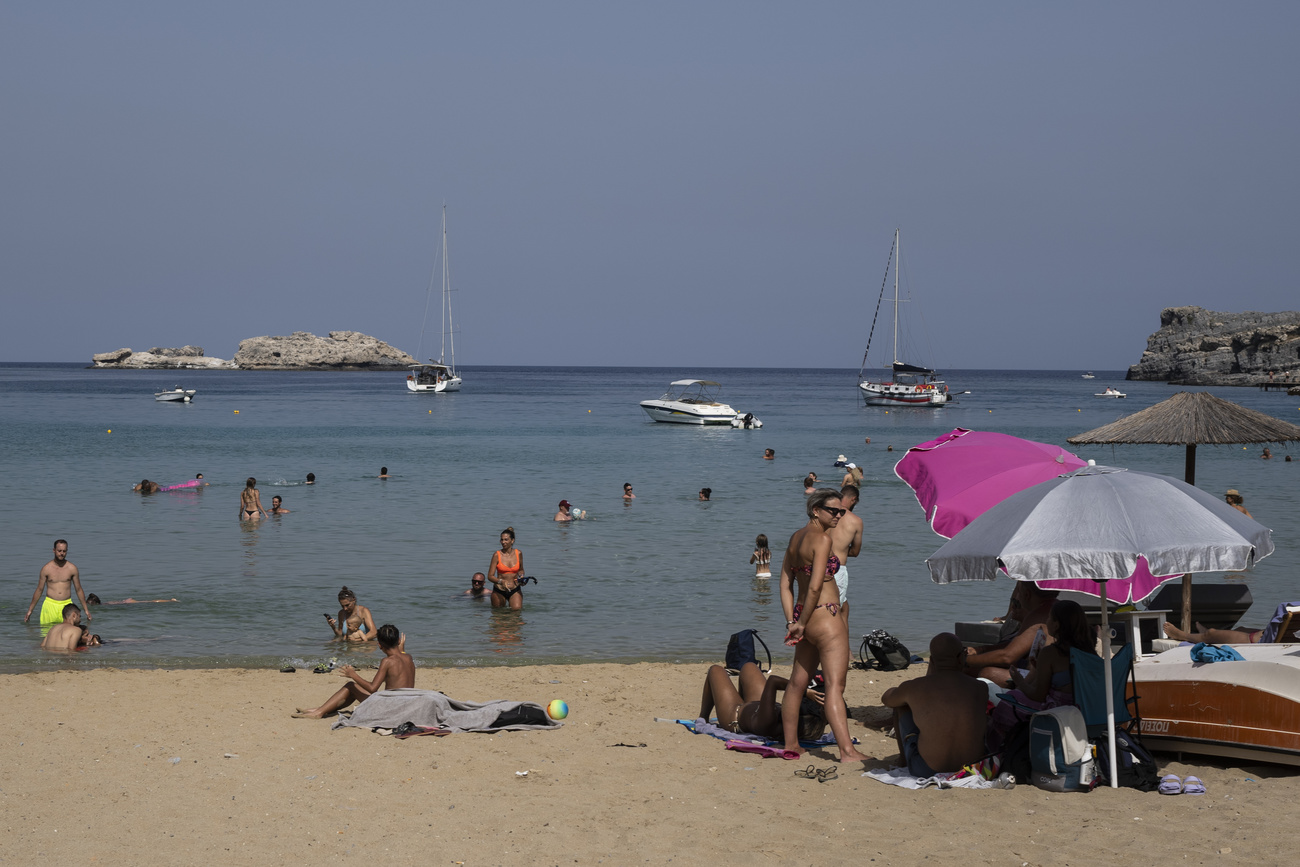
More
Switzerland experiencing ‘travel fever’
In the case of Switzerland, being able to target a certain type of tourist is of course a positive aspect. More generally, though, we cannot overlook the fact that price competitiveness is an important factor that must be closely monitored. It can have a negative impact on demand, for example in the event of a rapid appreciation of the Swiss franc.
SWI: Your report shows that Switzerland is also relatively weak in terms of natural and cultural resources, lagging far behind Spain, Italy and France. Why is this?
F.B.: This is another example where direct comparison can be misleading. Of course, Switzerland has excellent natural and cultural resources and does a great job in promoting them. However, in our report, the size of the country is taken into account. Thus, in terms of natural resources, Switzerland has around 5,000km2 of protected areas, including national parks that can be visited. In comparison, Spain has 270,000km2 and the United States 2.9 million km2.
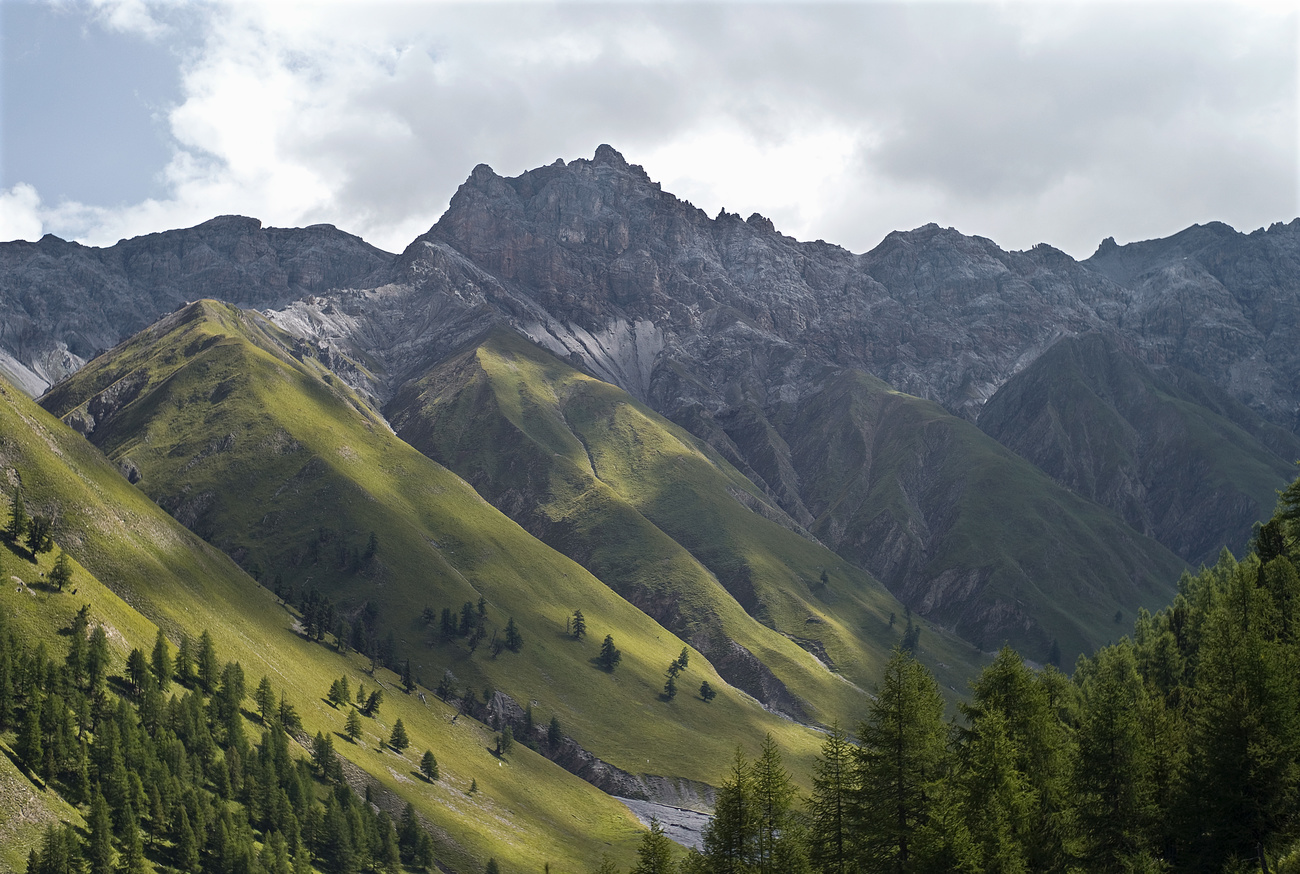
More
How nature parks are becoming an oasis of Swiss-EU cooperation
SWI: Does Switzerland nonetheless suffer from occasional overtourism?
F.B.: Regarding overtourism, Switzerland’s challenges are not specific to this country. Overtourism is on the whole very localised (as in Lauterbrunnen, Venice, Kyoto, etc.), rather than nationwide. It is also difficult to agree on a quantitative definition of the phenomenon.
The main thing is to have an ongoing dialogue between the authorities and local residents, because it is the population that benefits most from tourism, but also suffers most if there are too many visitors.
Thanks to such exchange mechanisms, the best possible consensus can be reached. It is important to base any discussions on scientific facts, such as the maximum number of daily visitors that a site can accommodate without being degraded.
SWI: If necessary, how can overtourism best be regulated?
F.B.: The United Nations suggests several methods for avoiding overtourism, such as applying dynamic pricing mechanisms, creating pedestrian-only zones or using big data to monitor impacts. More generally, the world body recommends a more even homogeneous distribution of visitors over a given geographical area (e.g. a country) or over time; and this is exactly what Switzerland is doing.
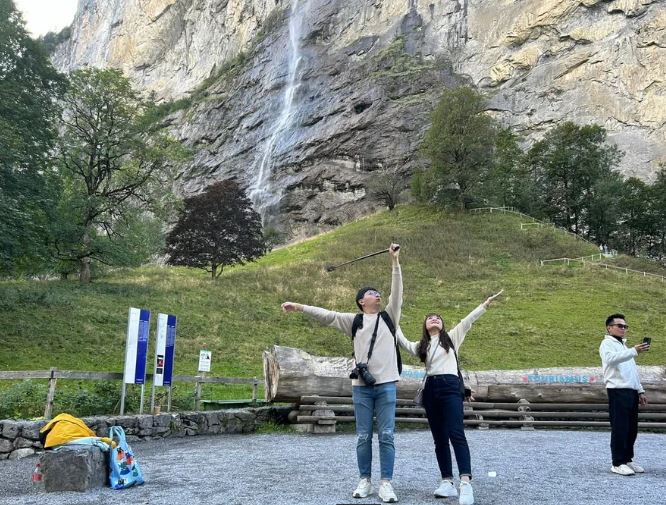
More
Mass tourism: “We feel like employees in a theme park”
SWI: One key challenge for Swiss tourism is the lack of skilled workers. What do you recommend to overcome this?
F.B.: There is no miracle solution to this serious problem, which affects all developed countries. To attract more workers, the tourism professions need to be made more attractive, by improving working conditions and providing proper training to new recruits.
This process takes time, which explains why supply is currently unable to meet demand. As always, a good working relationship between the authorities and the private sector is essential if effective measures are to be put in place.
SWI: In Switzerland, many different entities (national, cantonal, municipal, etc.) are involved in promoting tourism. What are the best practices here?
F.B.: As I see it, the ideal set-up is the one that best responds to each country’s specific needs. In the case of Switzerland, we are dealing with a very federalised state, a fact that also contributes to its beauty and variety. So I believe that the promotion of tourism in Switzerland should be highly decentralised, but with strong national coordination and the projection of a single, common brand.
Generally speaking, national tourism bodies are now clearly more aware of the need to manage visitor flows, promote lesser-known destinations and include all stakeholders to ensure that tourism benefits everyone and respects local culture and nature. In other words, they are no longer content with just doing marketing and attracting tourists.
SWI: Will new clean technologies be enough to ensure sustainability, or is a reduction in travel inevitable?
F.B.: This balance between growth and sustainability is the challenge of the century. Vast technological advances are underway. I am thinking, for instance, of sustainable fuels for aviation, and hydrogen and electric power. It will still take massive investment and around 20 years to make our sector sustainable but, as a techno-optimist, I firmly believe it can be done.
It is of course vital that all stakeholders contribute in different ways to bring about sustainability, including through substantial investment. This calls for a high degree of coordination, which is why our forum regularly brings together all the key players. Lastly, we must also each do our bit as consumers and travel as responsibly as possible.
SWI: Are consumers on the whole prepared to pay more for sustainable solutions?
F.B.: More expensive solutions already exist that offset some of the CO2 emissions, and I see some interest in these options, particularly among the younger generations in developed economies.
Text edited by Samuel Jaberg. Adapted from French by Julia Bassam/sb
More

In compliance with the JTI standards
More: SWI swissinfo.ch certified by the Journalism Trust Initiative













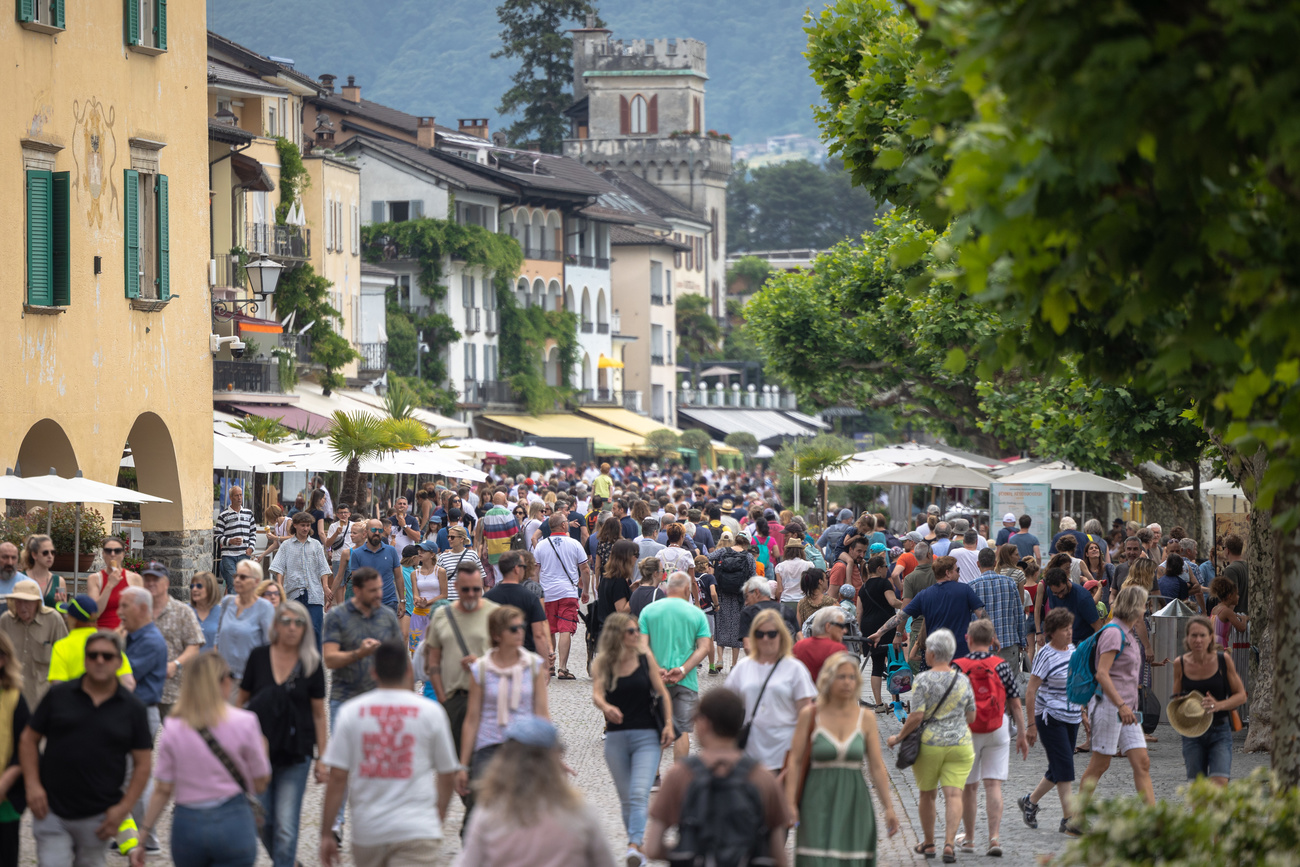
You can find an overview of ongoing debates with our journalists here . Please join us!
If you want to start a conversation about a topic raised in this article or want to report factual errors, email us at english@swissinfo.ch.